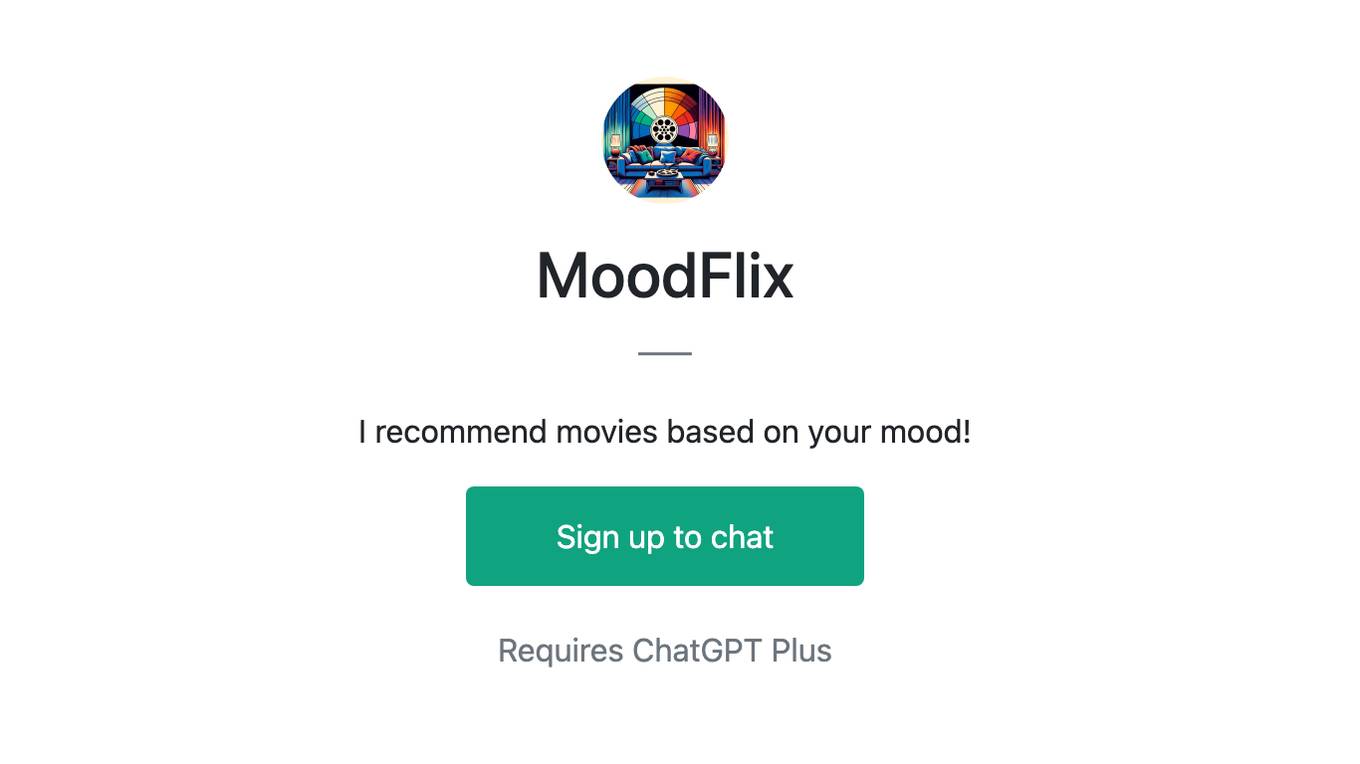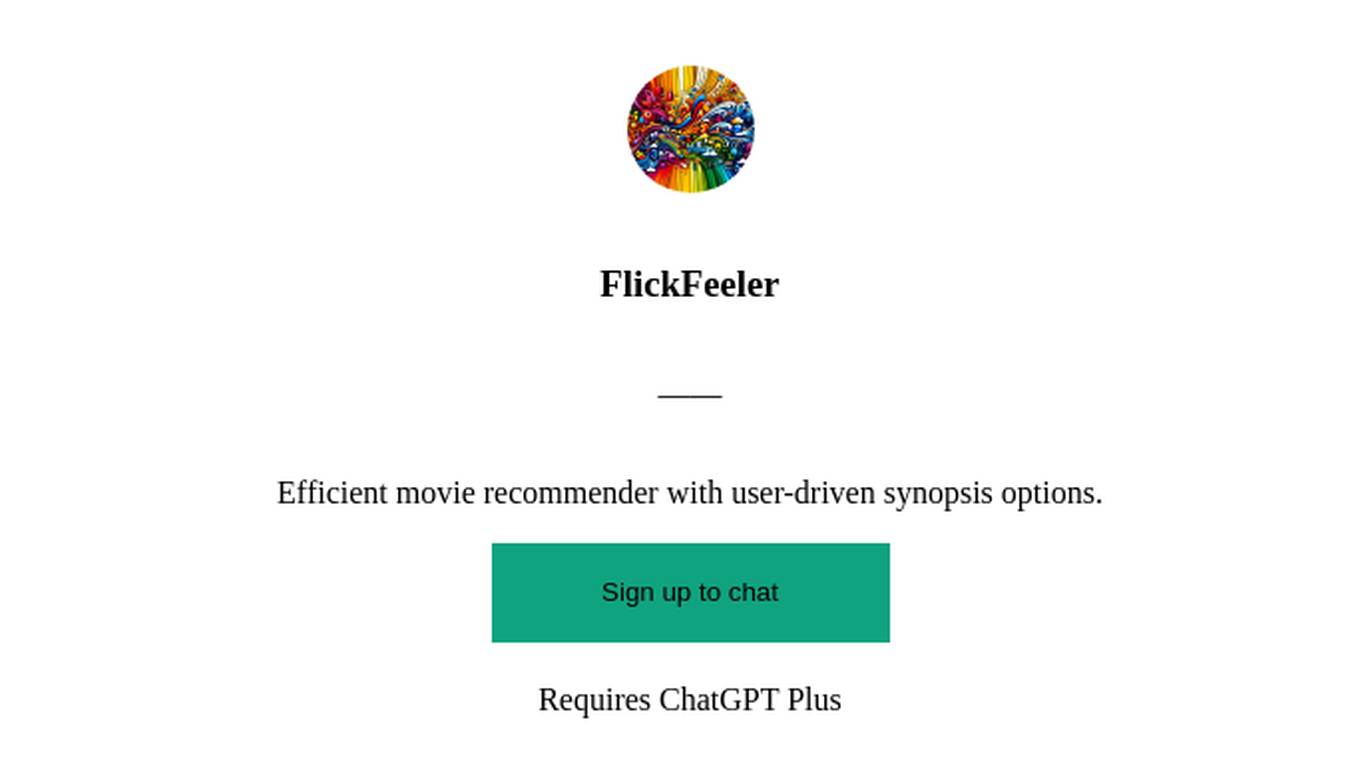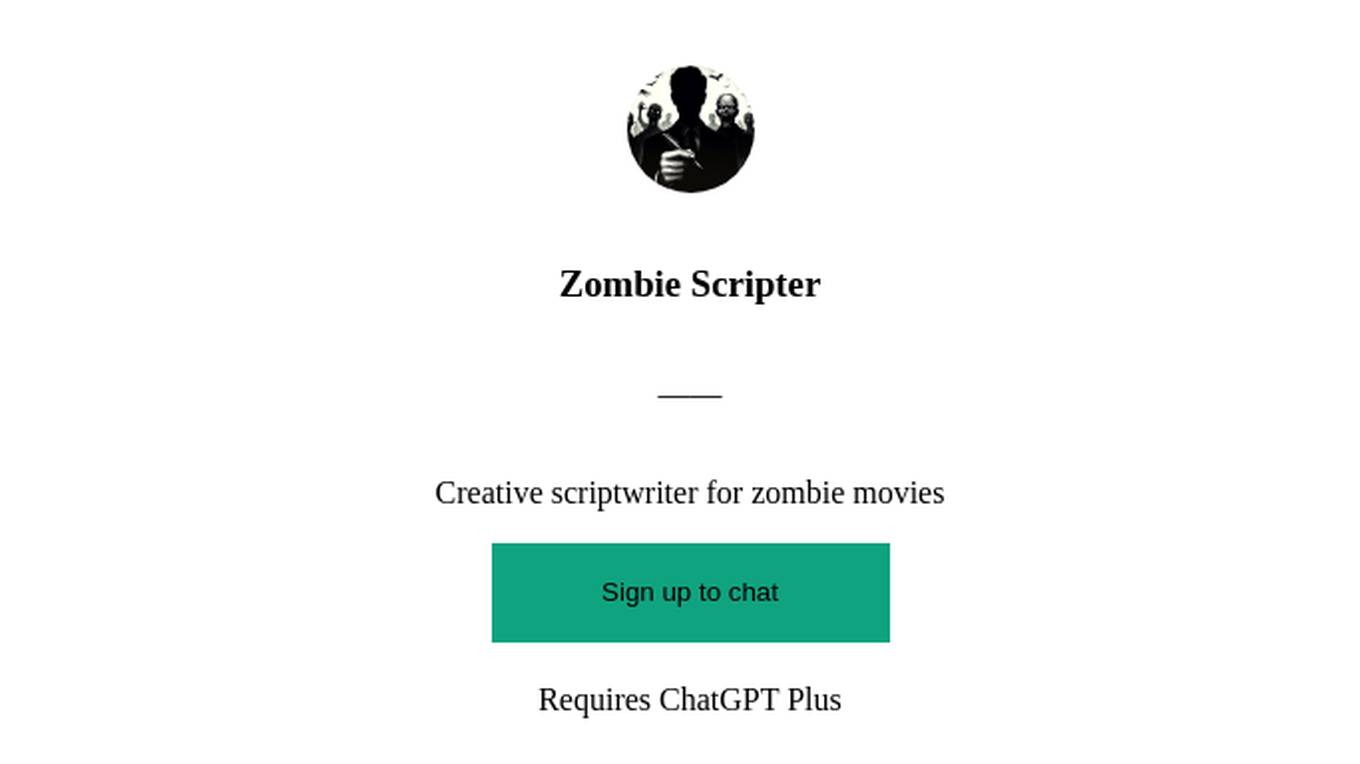Best AI tools for< Recommend Film >
20 - AI tool Sites

ReddiReach
ReddiReach is a leading Reddit Marketing and AI Search Optimization Agency that specializes in helping brands get recommended by AI models like ChatGPT, Perplexity, and Google AI through authentic Reddit marketing. They have served over 500 clients by leveraging Generative Engine Optimization (GEO) to position brands for AI recommendations. ReddiReach focuses on building real brand presence through genuine community engagement, ensuring lasting results in AI search visibility and recommendations.

One-Stop Natural Language Hotel Recommender
The One-Stop Natural Language Hotel Recommender is an AI-powered tool that simplifies the process of finding the perfect hotel for your needs. By utilizing natural language processing technology, the tool can understand your preferences and requirements, and provide you with personalized hotel recommendations. It considers factors such as proximity to popular places, top-rated establishments, summarized reviews, and staying within your budget. With this tool, you can easily find the ideal accommodation for your next trip without the hassle of extensive research.
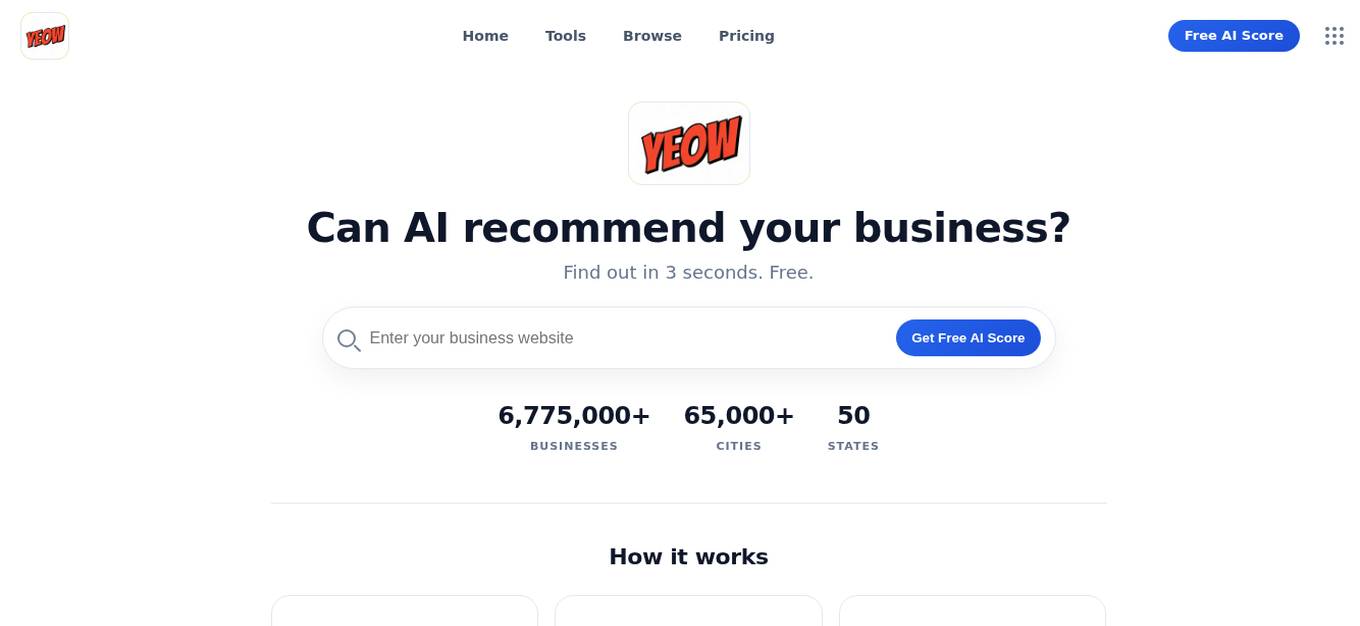
Yeow.ai
Yeow.ai is a platform that helps local businesses improve their visibility and get recommended by AI assistants like ChatGPT, Google Gemini, and Siri. It offers a free AI assessment and creates AI-readable profiles with structured data to ensure businesses show up when people ask AI for recommendations. The platform optimizes profiles using JSON-LD schema markup, making businesses more legible to AI. Yeow.ai caters to various local service businesses such as plumbers, electricians, dentists, lawyers, and restaurants, among others.
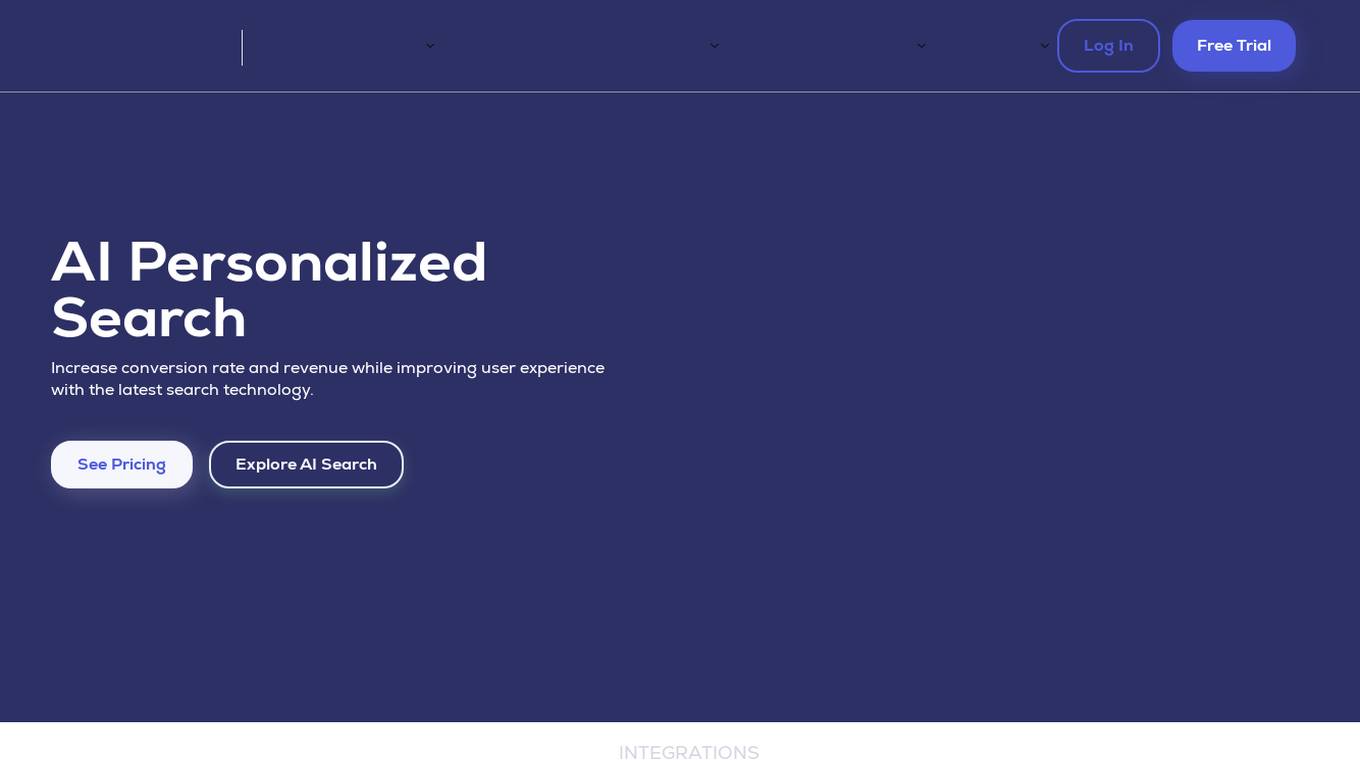
Prefixbox
Prefixbox is an AI-powered search and discovery solution that offers a range of features to enhance user experience and boost revenue for Enterprise retailers. It provides personalized search, rich autocomplete, navigation, recommendations, insights, and analytics. Prefixbox is trusted by various industries and offers easy integration, localized language support, and market-driven development. The application helps in increasing conversion rates, average order value, and revenue through data-driven search results and relevant recommendations.
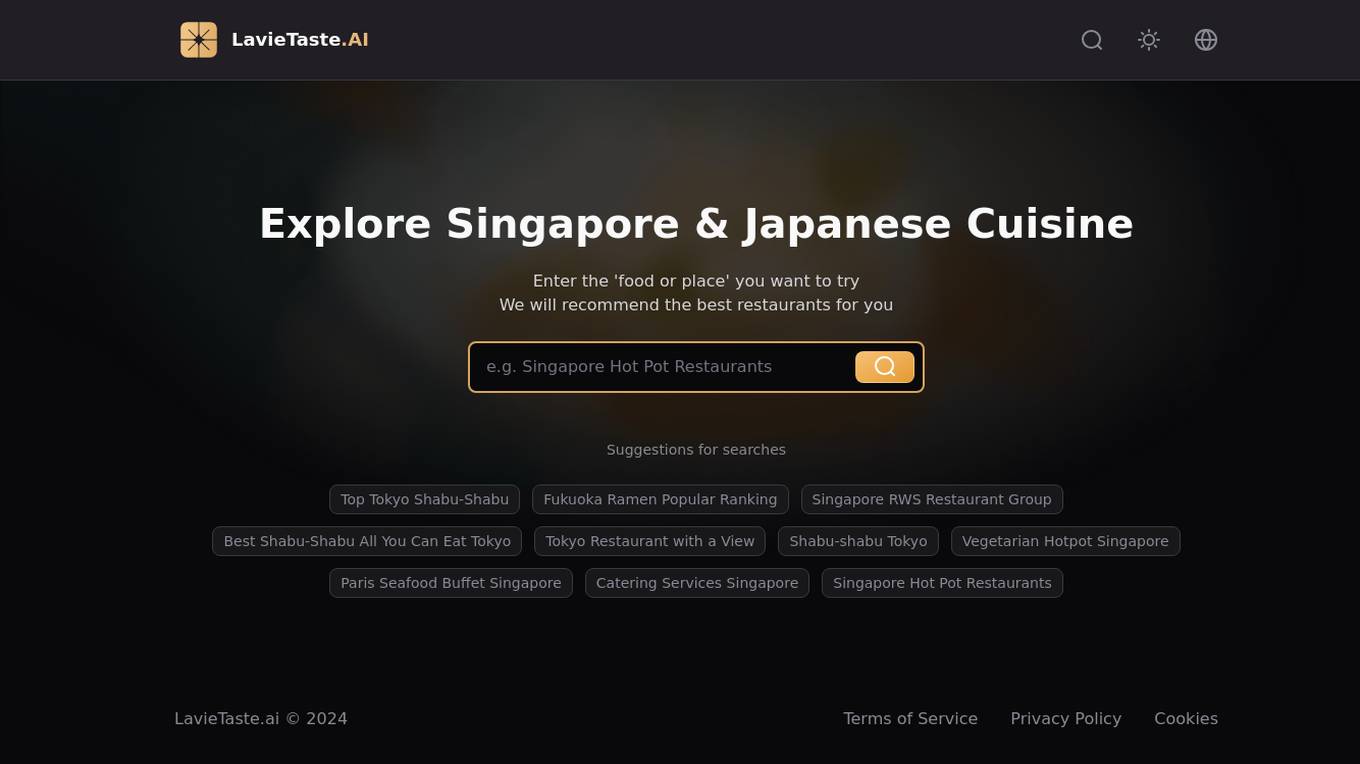
LavieTaste.AI
LavieTaste.AI is an AI-powered application that helps users explore and discover the best restaurants offering Singaporean and Japanese cuisine. By simply entering the desired food or place, the tool provides personalized recommendations for top dining experiences. Users can find a variety of options ranging from retro cafes to popular buffets and top steak houses. LavieTaste.AI aims to enhance the culinary journey of users by offering tailored suggestions based on their preferences and location.
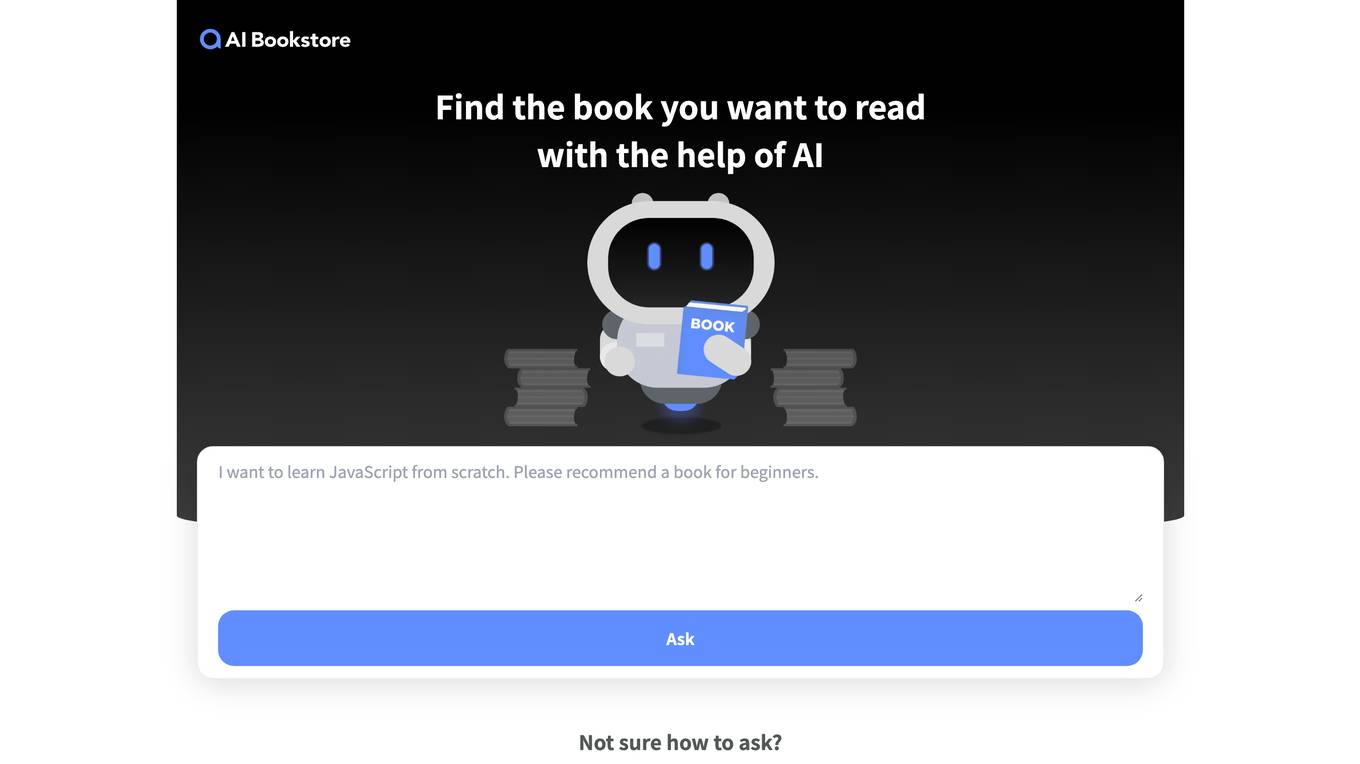
AI Bookstore
AI Bookstore is a website that uses AI to help users find books that they want to read. Users can ask the AI questions about what they are looking for, and the AI will recommend books that match their criteria. The AI can also generate personalized recommendations based on a user's reading history.
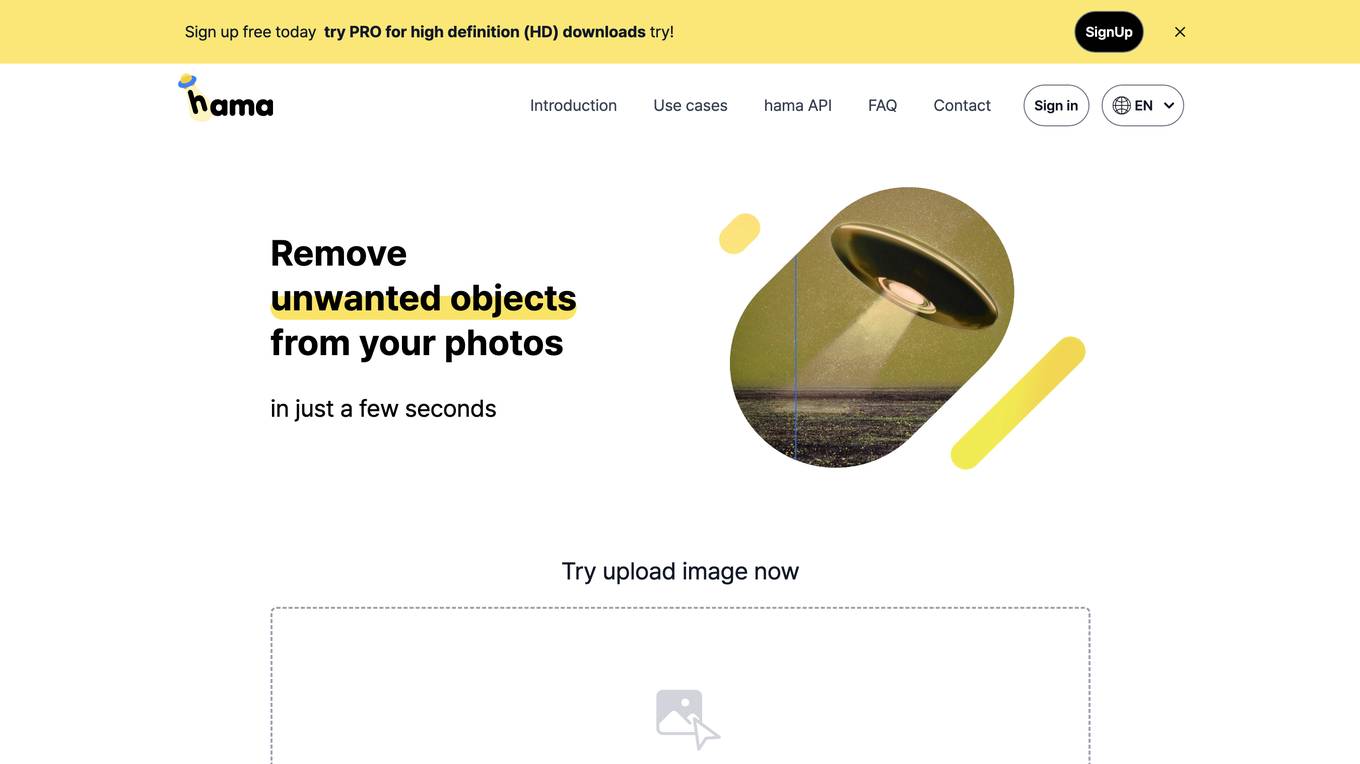
hama.app
Remove Objects from Photos - AI Image Eraser tool hama.app is an online tool that allows you to remove unwanted objects from your photos with just a few clicks. It uses artificial intelligence to automatically detect and remove objects, making it easy to clean up your photos and get rid of anything you don't want. With hama.app, you can remove people, objects, blemishes, and even entire backgrounds from your photos, leaving you with a clean and polished image.
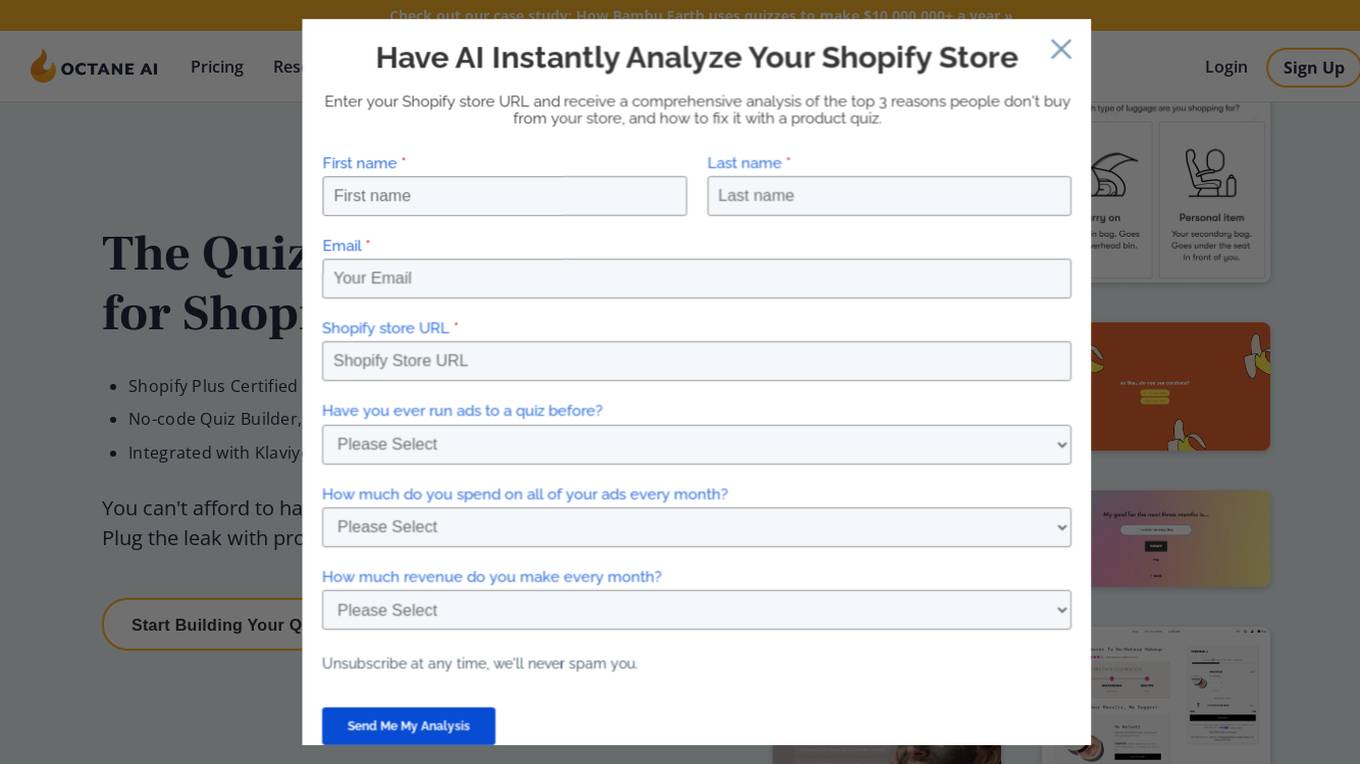
Octane AI
Octane AI is a powerful AI tool designed for Shopify stores to create smart quizzes that drive revenue growth. It offers a no-code interface, seamless integrations with platforms like Shopify and Klaviyo, personalized product recommendations, and automated email marketing. With features like conditional logic, advanced design options, and in-depth analytics, Octane AI helps businesses engage customers, collect insights, and personalize the shopping journey. The platform is built for ecommerce marketers by ecommerce marketers, with a focus on increasing sales, boosting conversions, and fostering stronger customer relationships.
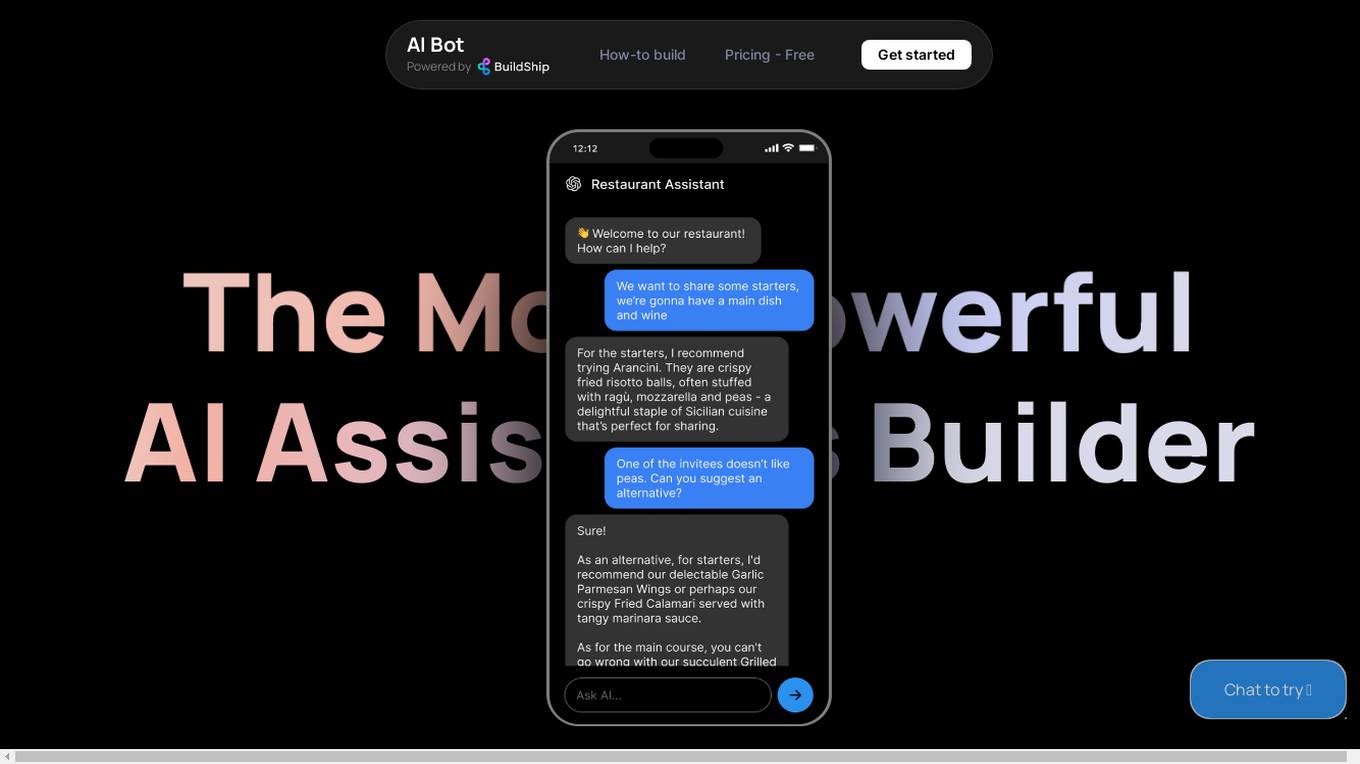
BuildShip.com
BuildShip.com is a powerful AI Assistant Builder that allows users to create AI Assistant ChatBots in just 5 minutes. The platform enables users to connect to tools and databases without the need for any code, offering full flexibility with low-code options. Users can build AI Assistants using popular models like OpenAI, Claude 3, and Azure, and can easily ship their creations as APIs, chat widgets, workflow, or schedule jobs. The platform also provides secure integration with databases, the ability to generate custom action nodes, and seamless plugin chat widgets for websites. BuildShip.com simplifies the process of building AI Assistants and empowers users to bring their ideas to life effortlessly.
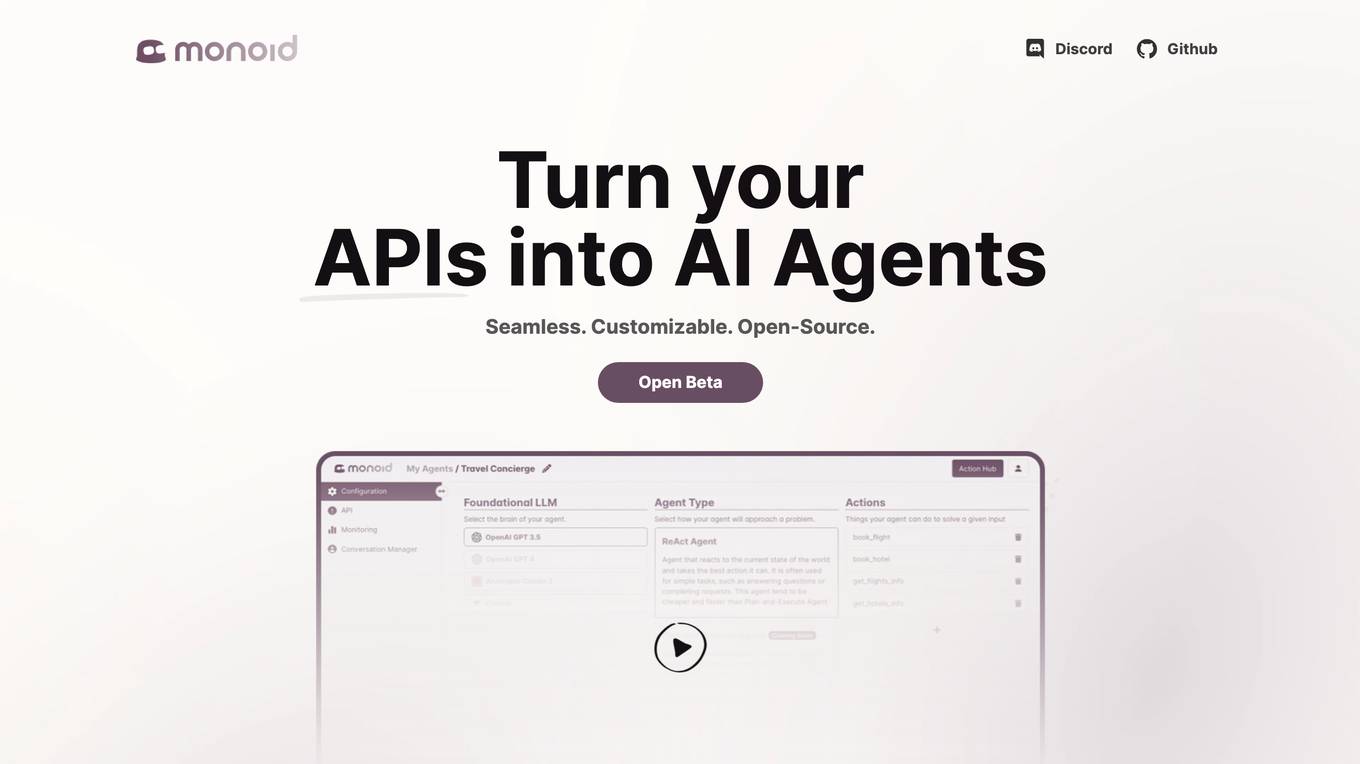
Monoid
Monoid is an AI tool that transforms APIs into AI Agents, enhancing the capabilities of Large Language Models (LLMs) by providing context and real-time actions. Users can create customized AI Agents in minutes by selecting a foundational LLM, an Agent Type, and defining Actions controlled by the AI Agent. Monoid enables users to simulate AI Agents using APIs, chat with the Agents, and share Actions on a collaborative platform. The tool caters to various use-cases such as acting as a Shopping Assistant, Customer Support Agent, and Workflow Automator, offering seamless integration and open-source flexibility.
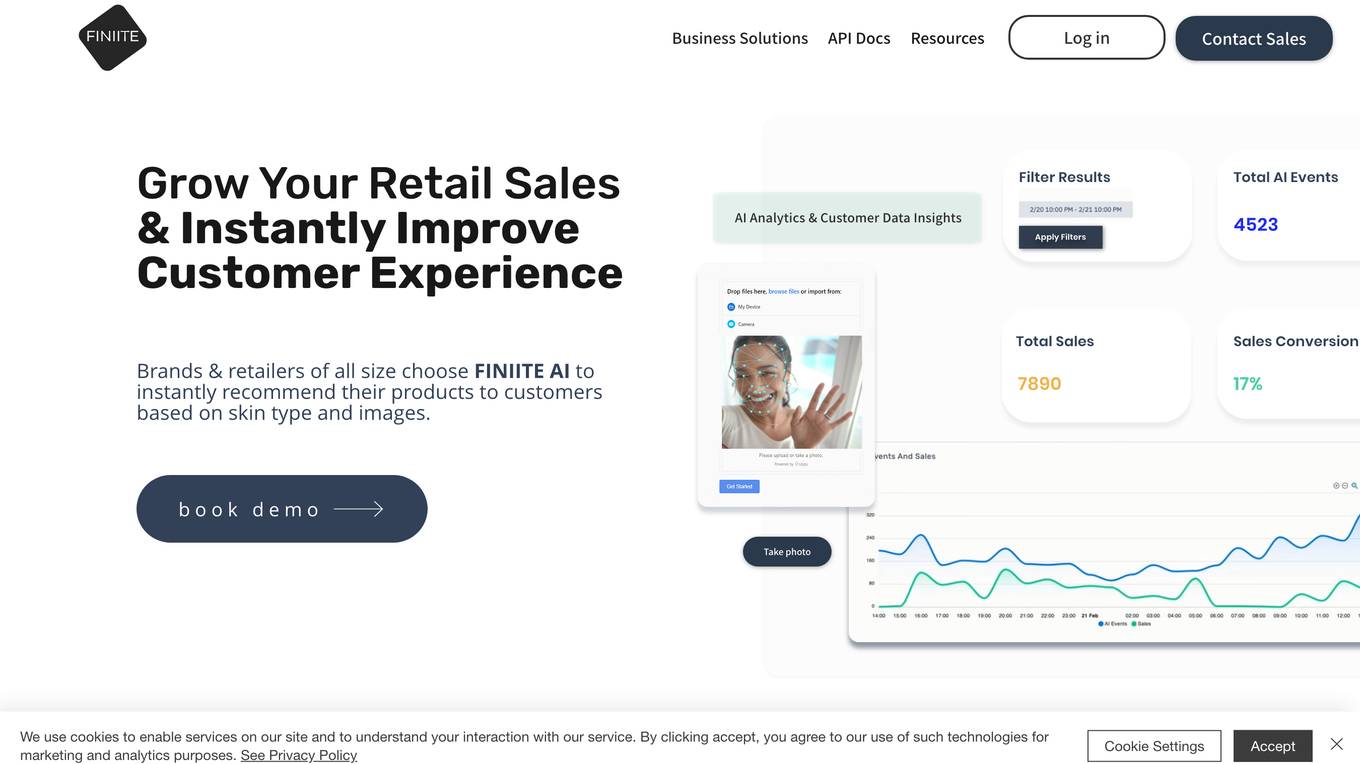
FINIITE AI
FINIITE AI is a retail and brand marketing solution that uses AI to help businesses grow their sales and improve customer experience. The company's flagship product is a product recommendation engine that uses AI to personalize product recommendations for each customer. FINIITE AI also offers a suite of other AI-powered solutions, including a skin check tool, a customer data insights platform, and a CRM integration. FINIITE AI's solutions are used by businesses of all sizes, from small businesses to large enterprises.
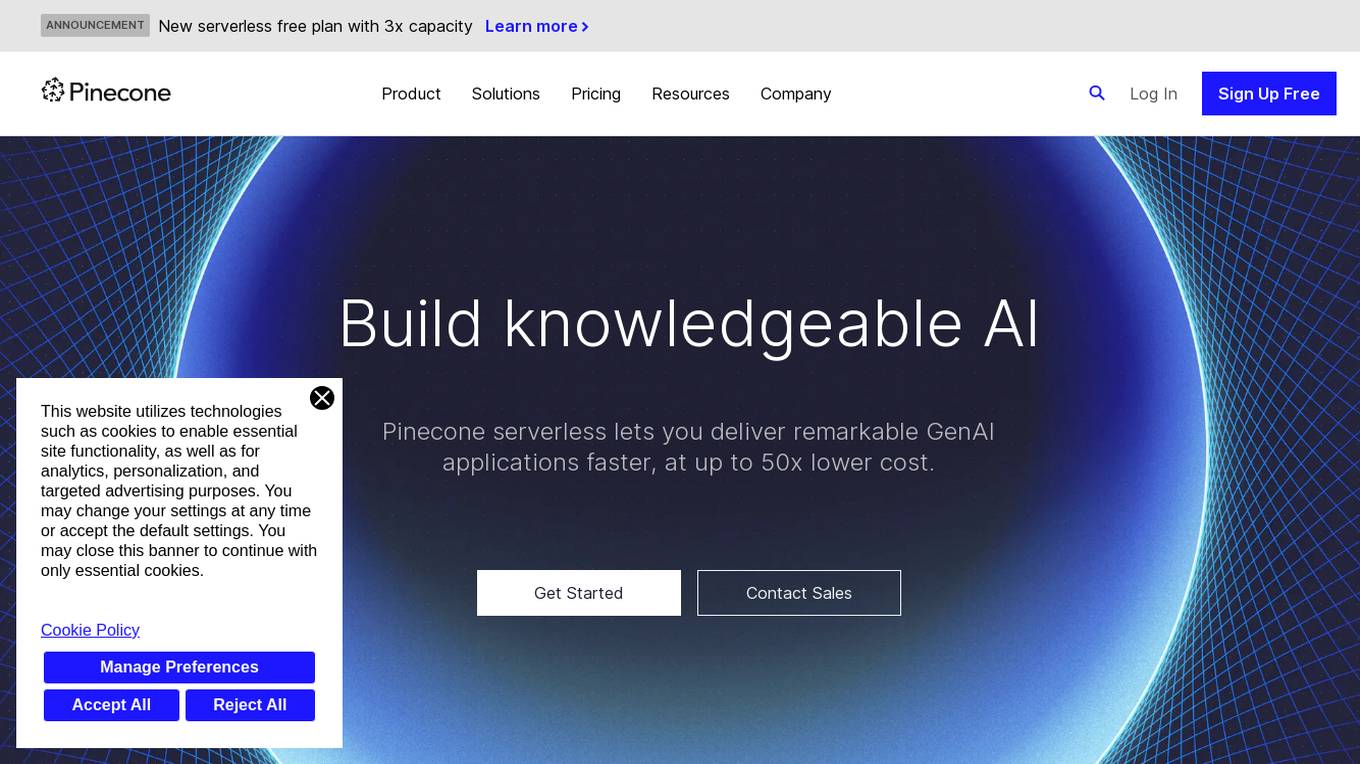
Pinecone
Pinecone is a vector database designed to build knowledgeable AI applications. It offers a serverless platform with high capacity and low cost, enabling users to perform low-latency vector search for various AI tasks. Pinecone is easy to start and scale, allowing users to create an account, upload vector embeddings, and retrieve relevant data quickly. The platform combines vector search with metadata filters and keyword boosting for better application performance. Pinecone is secure, reliable, and cloud-native, making it suitable for powering mission-critical AI applications.
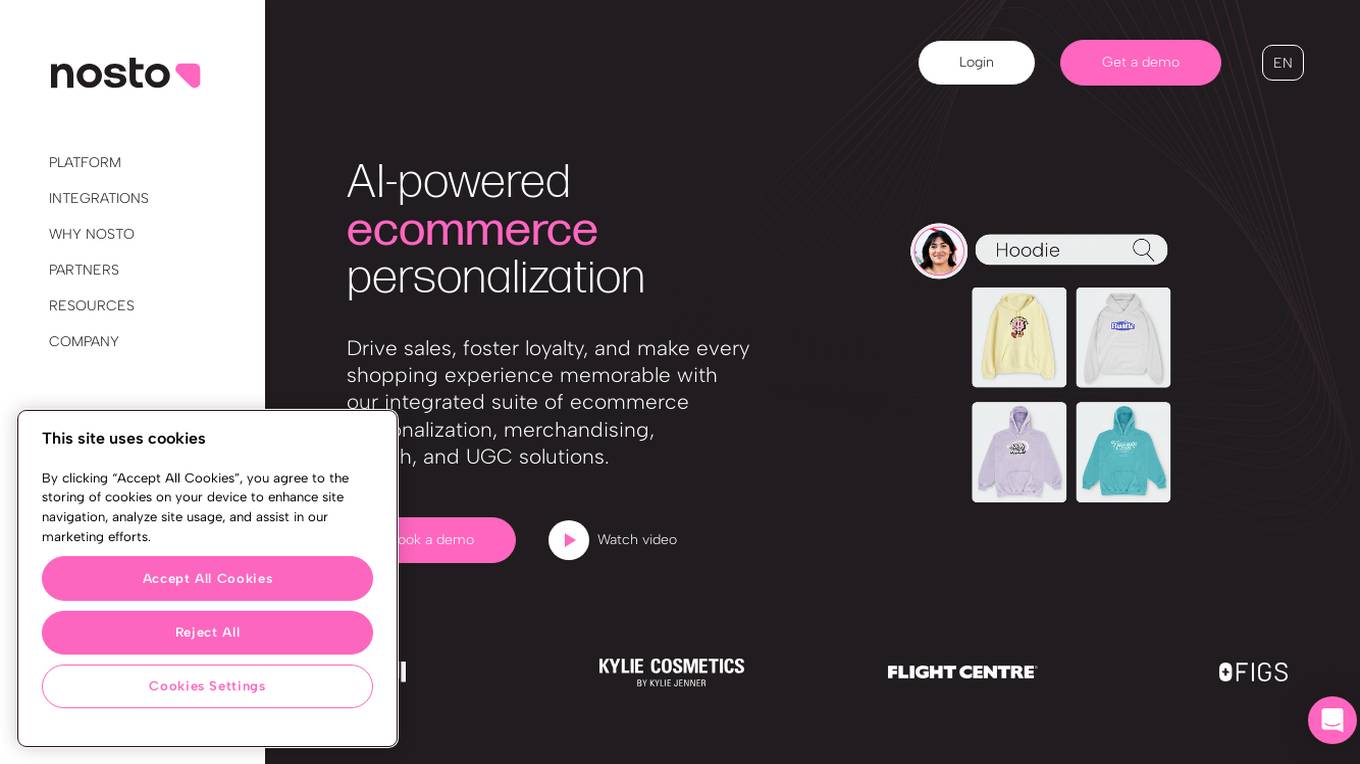
Nosto
Nosto is an AI-powered ecommerce personalization platform that offers a suite of solutions for driving sales, fostering loyalty, and creating memorable shopping experiences. The platform leverages artificial intelligence, business intelligence, and dynamic audience segmentation to deliver intelligent commerce experiences that increase revenue. Nosto's Experience Clouds enable users to turn commerce data into online revenue by providing enterprise-grade personalization, search and discovery, and user-generated content modules.
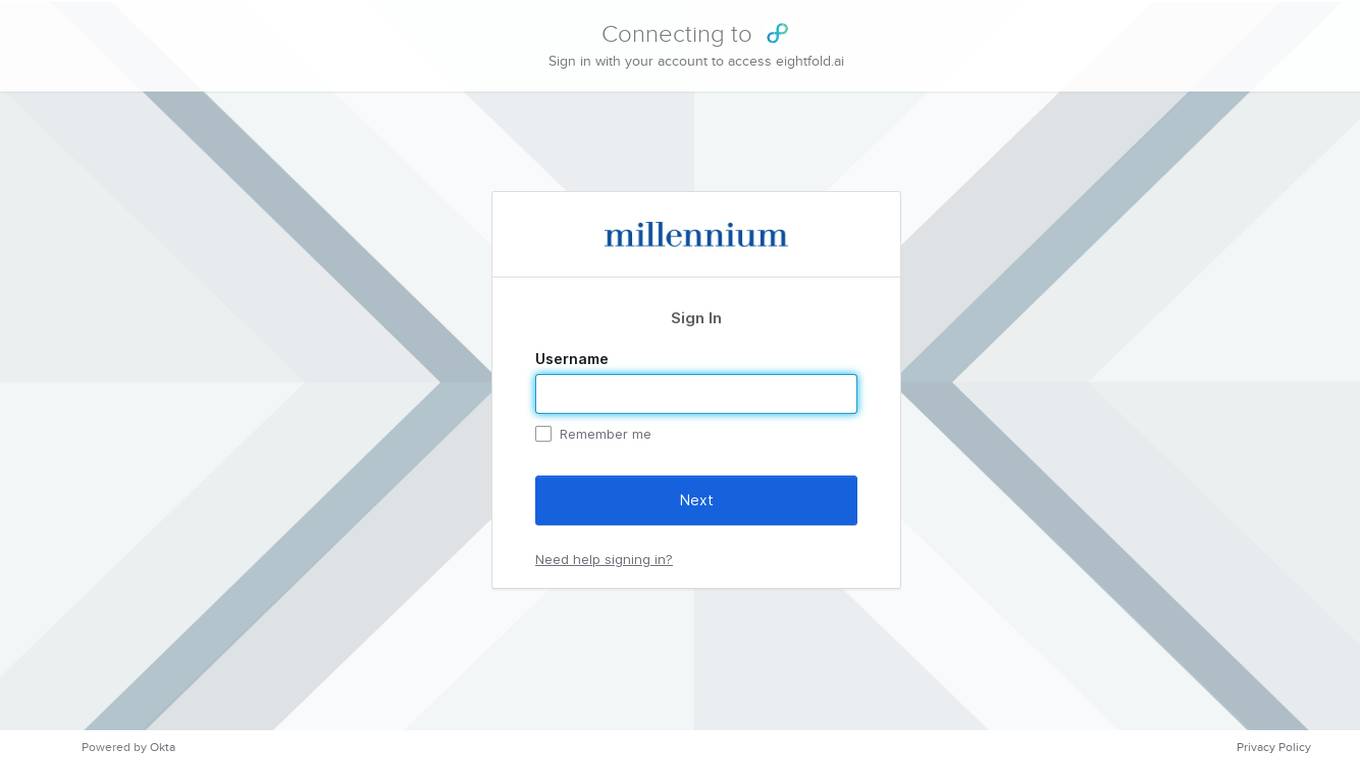
eightfold.ai
The website, eightfold.ai, is an AI tool that offers solutions for talent acquisition and management. It leverages artificial intelligence to streamline the recruitment process, match candidates with suitable roles, and enhance workforce diversity. By utilizing advanced algorithms and machine learning, eightfold.ai aims to revolutionize how organizations discover, engage, and retain talent. The platform provides a comprehensive suite of features to optimize hiring practices and improve employee experiences.
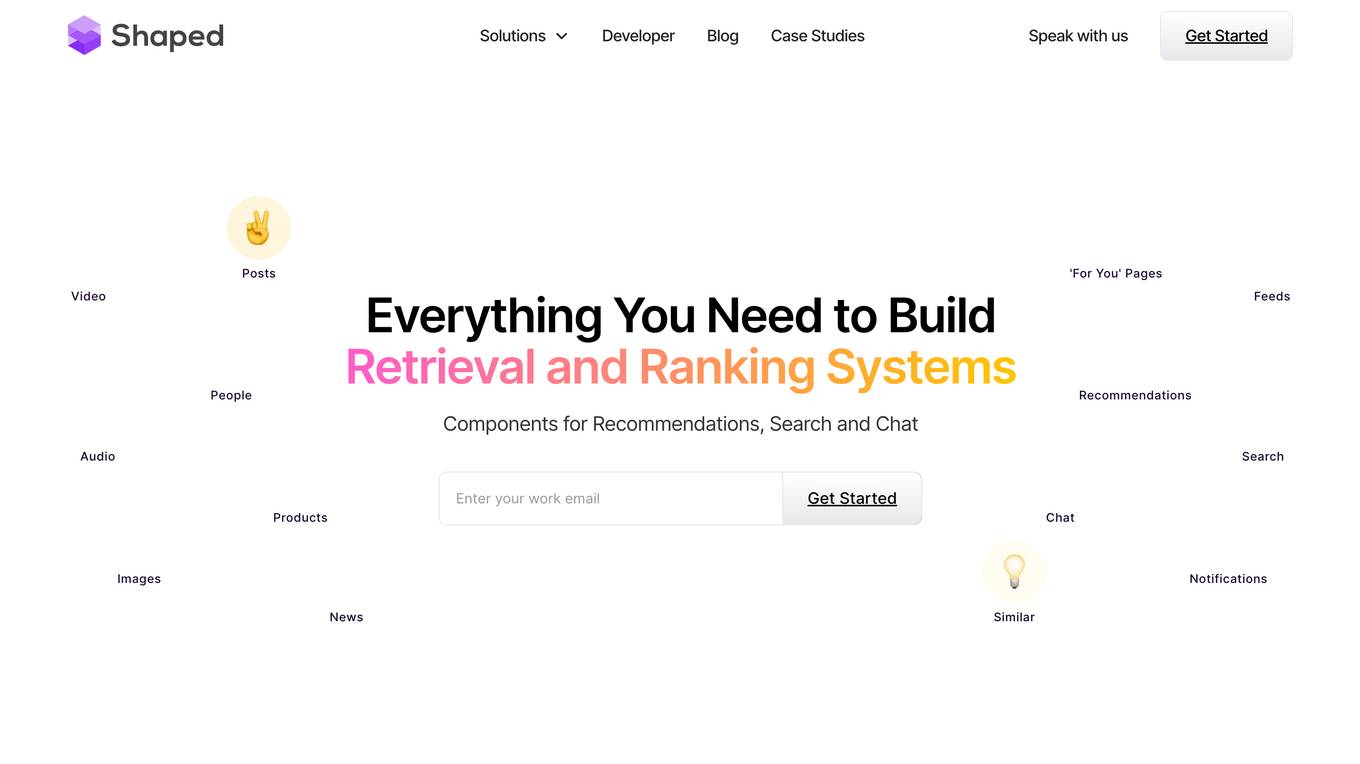
Shaped
Shaped is a cloud-based platform that provides APIs and tools for building and deploying ranking systems. It offers a variety of features to help developers quickly and easily create and manage ranking models, including a multi-connector SQL interface, a real-time feature store, and a library of pre-built models. Shaped is designed to be scalable, cost-efficient, and easy to use, making it a great option for businesses of all sizes.

VideaHealth
VideaHealth is a dental AI platform trusted by dentists and DSOs. It enhances diagnostics and streamlines workflows using clinical AI to identify and convert treatments across major oral conditions. The platform combines practice management system data with AI insights to elevate patient care and empower dental practices. VideaHealth offers advanced FDA-cleared detection algorithms to detect suspect diseases, provides AI-powered insights for data-driven decisions, and delivers real-time chairside assistance to dentists.
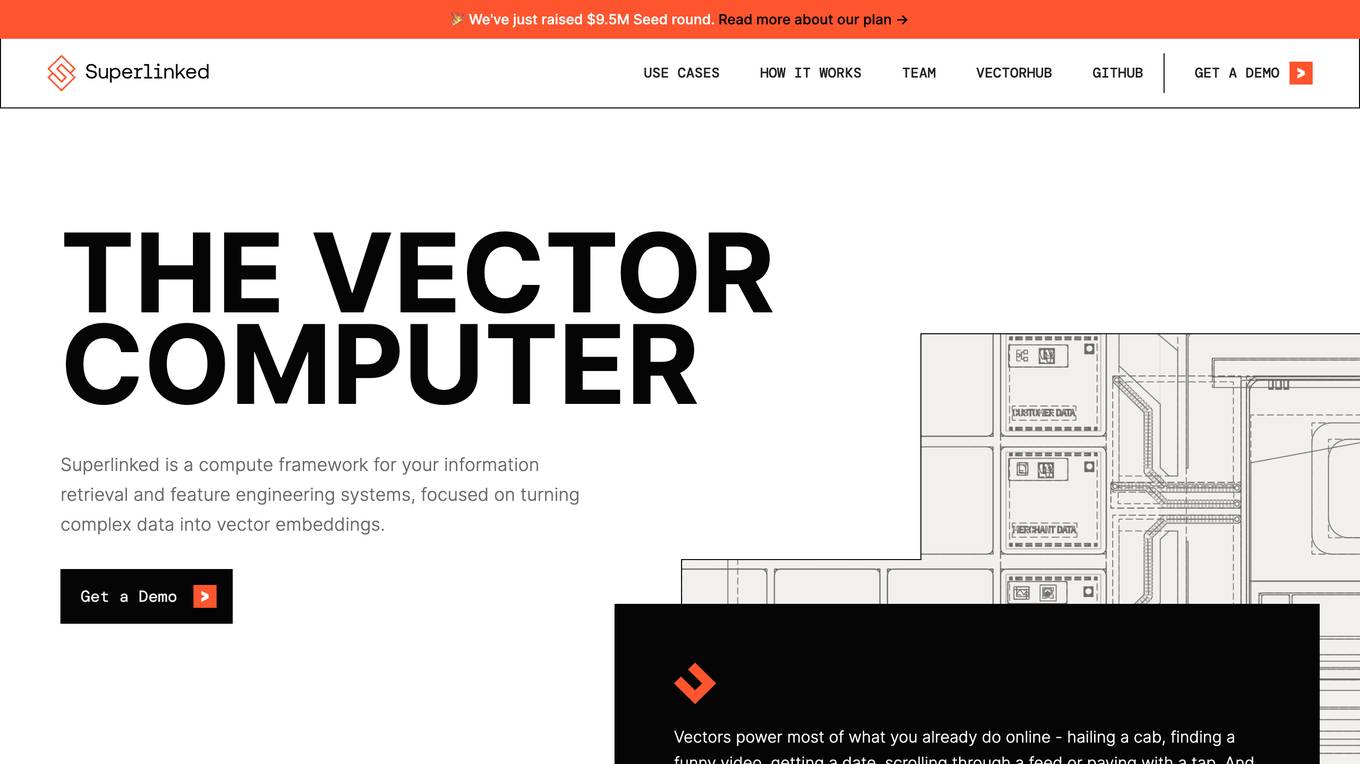
Superlinked
Superlinked is a compute framework for your information retrieval and feature engineering systems, focused on turning complex data into vector embeddings. Vectors power most of what you already do online - hailing a cab, finding a funny video, getting a date, scrolling through a feed or paying with a tap. And yet, building production systems powered by vectors is still too hard! Our goal is to help enterprises put vectors at the center of their data & compute infrastructure, to build smarter and more reliable software.
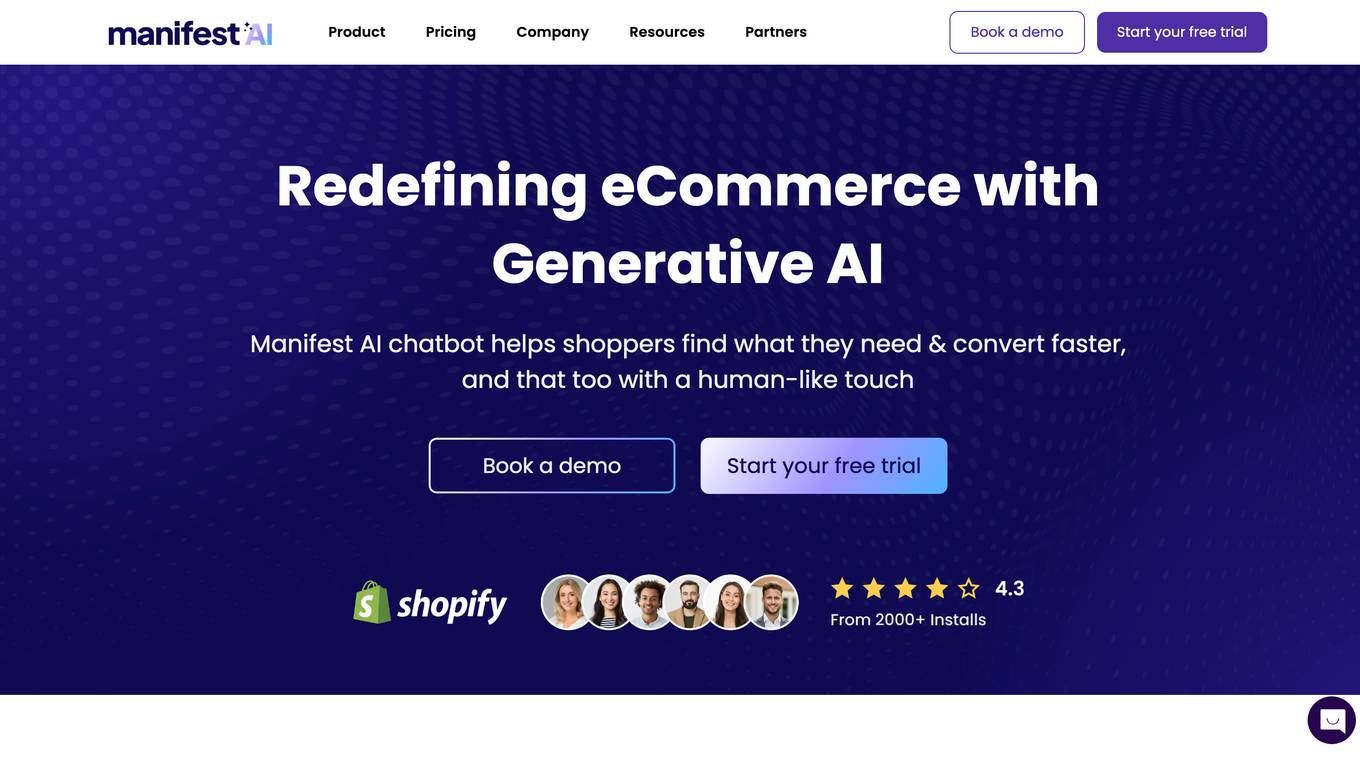
Manifest AI
Manifest AI is a GPT-powered AI shopping assistant designed for Shopify stores. It enhances customer experiences by providing AI-driven search, nudges, support, and quizzes for a smoother shopping journey. The application integrates with eCommerce tech stack, generates tickets on helpdesk, and offers personalized shopping experiences. Manifest AI aims to redefine ecommerce by simplifying every step of shopping with AI technology, offering intelligent and personalized shopping experiences to customers worldwide.
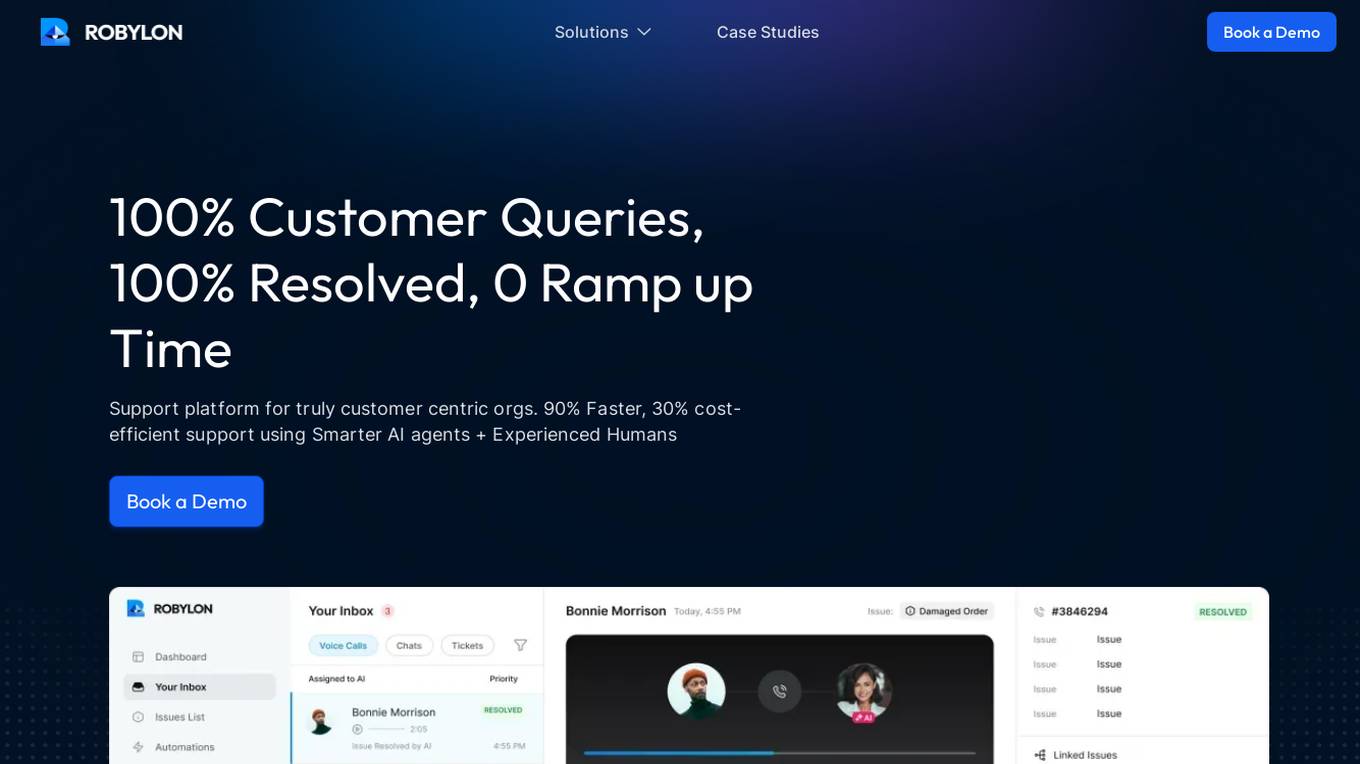
Robylon
Robylon is an AI-powered customer support platform that combines the efficiency of AI agents with the expertise of experienced humans to provide fast and cost-effective solutions for organizations. It ensures accuracy with human oversight, handles tricky queries efficiently, and offers personalized product suggestions. Robylon is trusted by top companies for its 99% accuracy, faster deployment, and customizable features. The platform allows for easy updates, transparent pricing based on resolutions, and seamless integration with CRM and inventory systems.

Glowy AI
Glowy AI is a personalized skincare treatment app that provides users with tailored skincare plans based on their unique skin concerns and goals. The app uses AI to analyze users' skin and provide them with personalized recommendations for products and routines. Glowy AI also offers expert consultation from dermatologists and a community forum where users can connect with others and share tips and advice.
0 - Open Source AI Tools
20 - OpenAI Gpts
Carlos GPT Boyero
Crítico sarcástico y breve al estilo de Carlos Boyero, especialista en reseñas cortas e implacables.
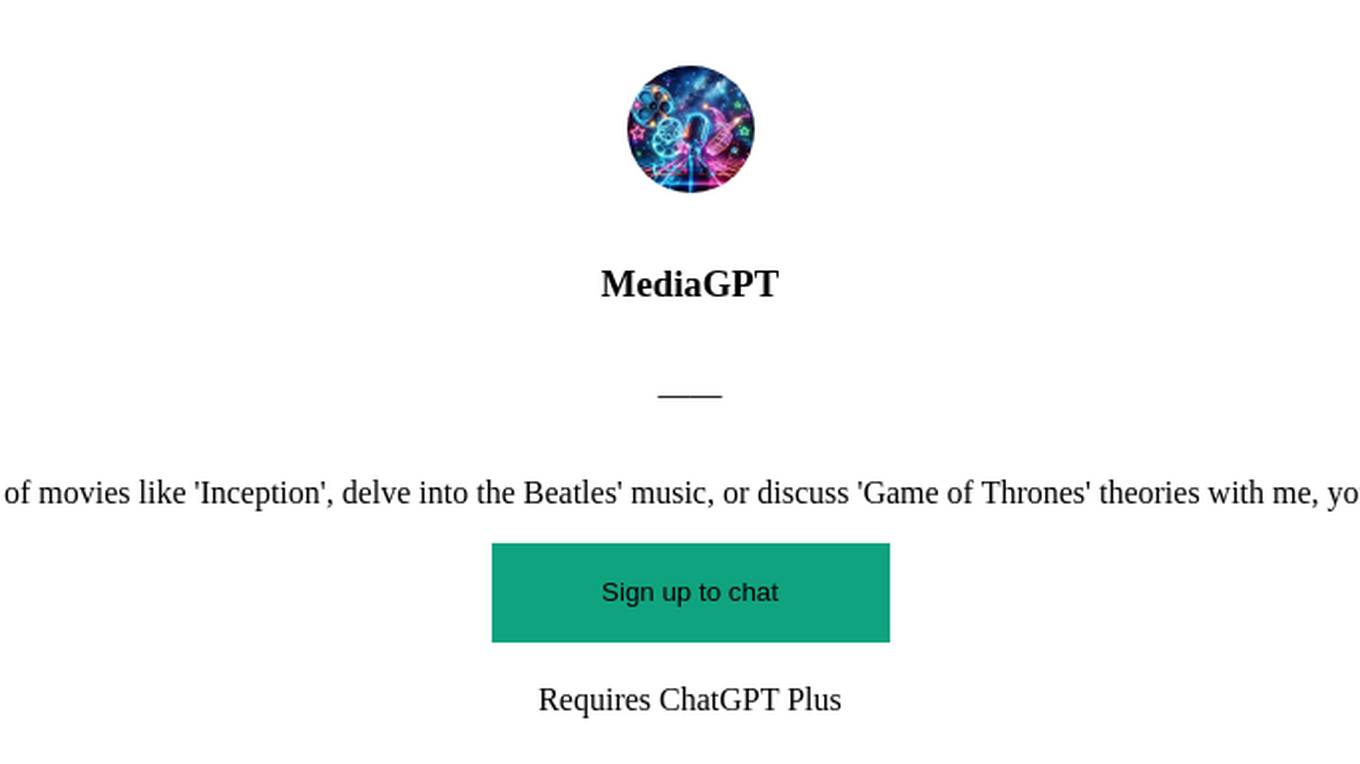
MediaGPT
Explore the realms of movies like 'Inception', delve into the Beatles' music, or discuss 'Game of Thrones' theories with me, your media aficionado!
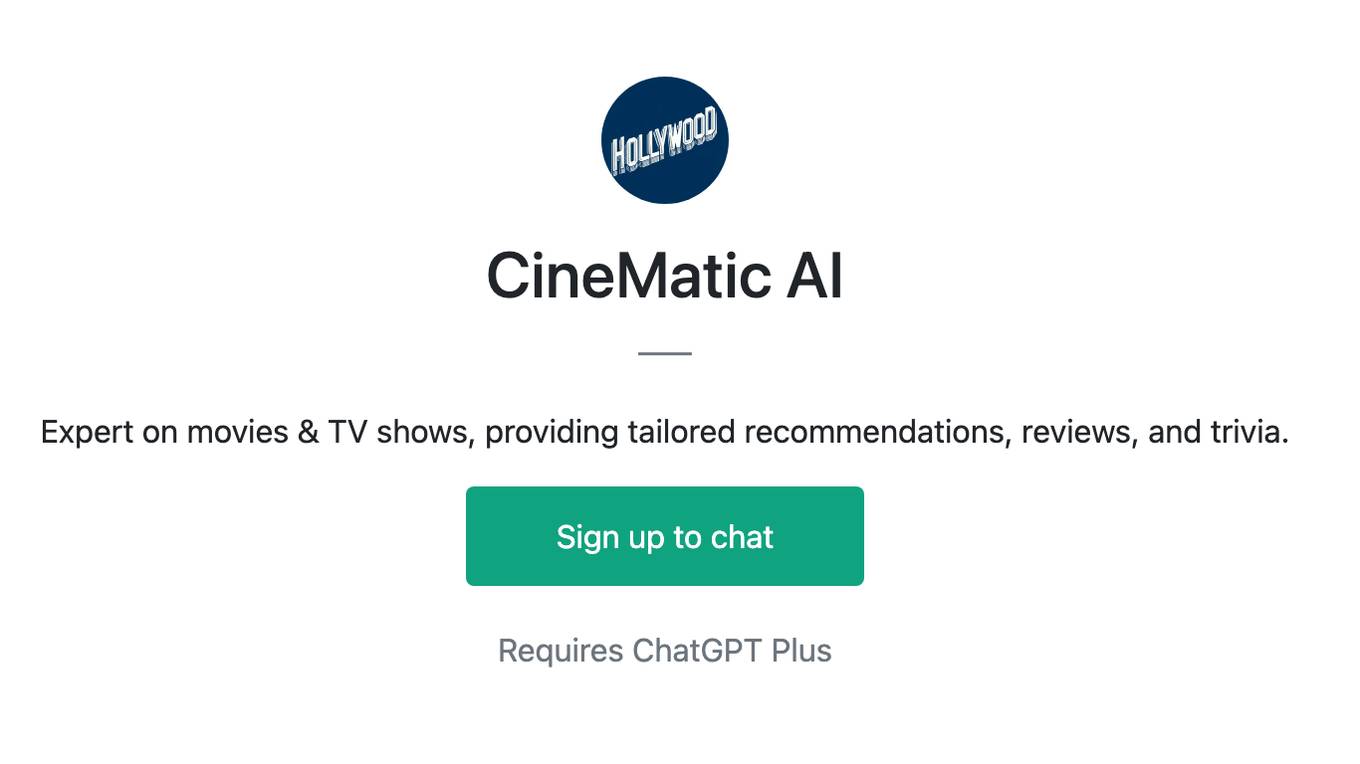
CineMatic AI
Expert on movies & TV shows, providing tailored recommendations, reviews, and trivia.

Book Lover : "Ethan"
Please upload an image of a book you love, and I will analyze your taste to recommend other great reads. Plus, engage in fascinating discussions about these books. It's time for exploring and talking about books!




